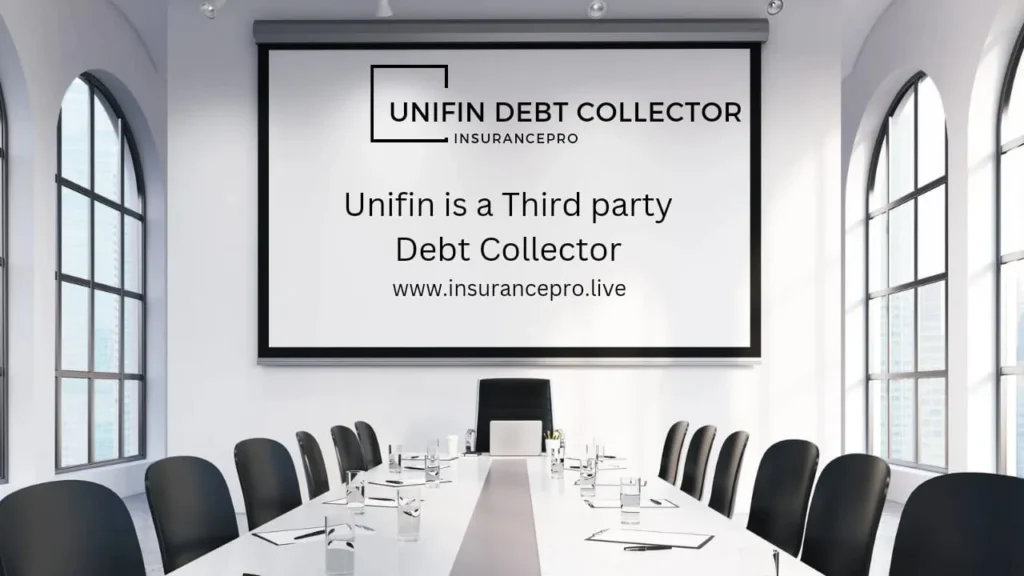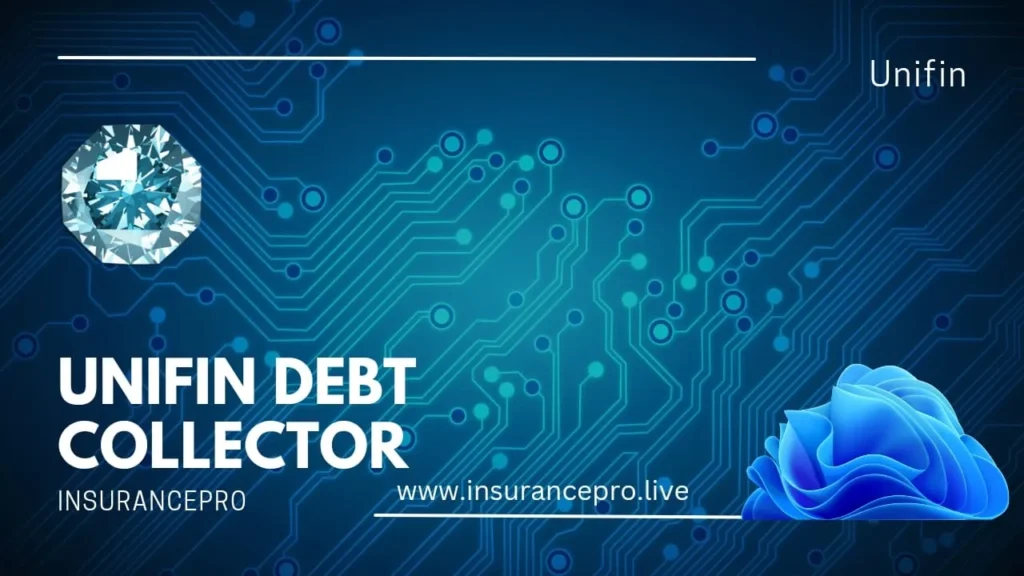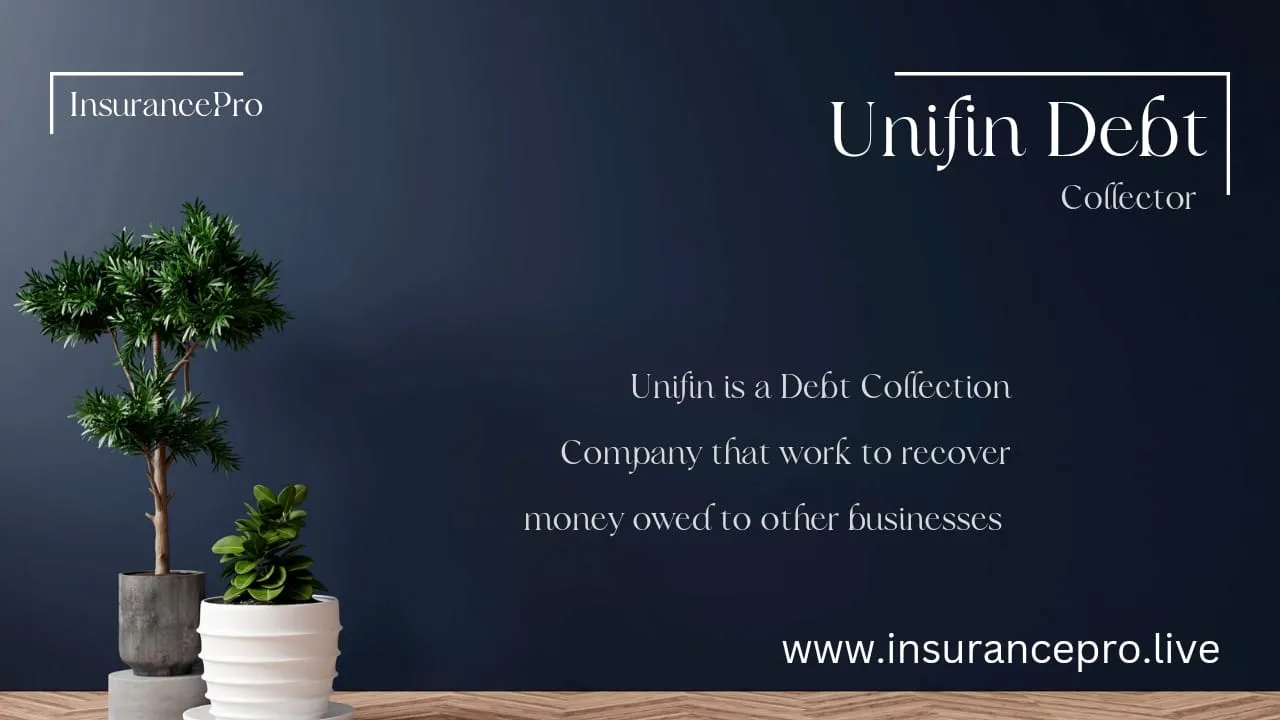Unifin is a **debt collection** company that works to recover money owed to other businesses. Unifin Debt Collector: What You Need to Know. If you’ve heard from Unifin, it likely means they’re trying to collect a debt you may owe. This article will explain who Unifin is, how they operate, and what you can do if they contact you.
Who is Unifin?
Unifin is a **third-party debt collector**. This means they don’t own the original debt, but they try to collect it for other companies. They work with many different businesses to help them get paid for overdue bills or loans.
How Unifin Works
When a company can’t get someone to pay a bill, they might ask Unifin for help. Unifin then tries to contact the person who owes money. They might:
Call you on the phone
Send letters to your home
Email you
Try to find you on social media
Their job is to convince you to pay the debt. They make money by either getting a percentage of what they collect or by buying the debt from the original company at a lower price.
If Unifin reaches out, it’s usually because:
1. You have an **unpaid bill** or loan
2. The original company couldn’t get in touch with you
3. The debt was sold to Unifin
It’s important to know that even if Unifin contacts you, it doesn’t always mean you owe money. Sometimes mistakes happen.
Your Rights When Dealing with Unifin
The **Fair Debt Collection Practices Act** (FDCPA) is a law that protects you from unfair treatment by debt collectors. Here are some key rights you have:
– Unifin must be honest about who they are and why they’re contacting you
– They can’t harass you or use mean language
– They can’t call you very early in the morning or late at night
– If you ask them to stop contacting you, they usually have to listen
– You can ask for proof that you owe the debt

What to Do If Unifin Contacts You
If Unifin reaches out, don’t panic. Here are some steps you can take:
1. **Ask for verification**: Request proof of the debt in writing. This helps make sure the debt is yours.
2. **Don’t ignore them**: Even if you think it’s a mistake, it’s better to deal with it than to ignore it.
3. **Know your rights**: Remember the FDCPA rules and don’t let Unifin break them.
4. **Keep records**: Write down when they call and what they say. Save any letters or emails.
5. **Be careful what you say**: Don’t admit to owing the debt until you’re sure it’s yours.
6. **Consider getting help**: If you’re unsure what to do, you might want to talk to a lawyer or a credit counselor.
If you find out the debt is yours, you have a few options:
1. **Pay in full**: If you can afford it, this is the simplest way to resolve the issue.
2. **Set up a payment plan**: If you can’t pay all at once, ask Unifin if you can pay in smaller amounts over time.
3. **Negotiate**: Sometimes, Unifin might agree to accept less than the full amount to settle the debt.
4. **Dispute the debt**: If you believe the debt isn’t yours or the amount is wrong, you can formally dispute it.
Protecting Your Credit Score
**Debt collection** can affect your **credit score**. A lower credit score can make it harder to get loans or credit cards in the future. Here’s how to protect your score:
– Pay your bills on time when you can
– If you’re struggling, talk to your creditors before the debt goes to collection
– Check your credit report regularly for mistakes
– If you settle a debt, get the agreement in writing
Avoiding Future Debt Collection
To keep debt collectors like Unifin away in the future, try these tips:
1. Make a budget to track your spending
2. Set up automatic payments for your bills
3. Build an emergency fund for unexpected expenses
4. Talk to your creditors right away if you’re having trouble paying
Common Questions About Unifin
Here are some questions people often ask about Unifin:
**Can Unifin sue me?**
Yes, Unifin can take legal action to collect a debt. But they have to follow certain rules and prove you owe the money.
**Will paying Unifin to remove the debt from my credit report?**
Paying the debt doesn’t automatically remove it from your credit report. But it will show as “paid” which is better than “unpaid.”
**Can Unifin take money from my bank account or paycheck?**
Generally, they need a court order to do this. They can’t take your money without your permission or a legal judgment.
**How long can Unifin try to collect a debt?**
This depends on the laws in your state. In many places, they can’t sue you for a debt after a certain number of years.
**What if I don’t think the debt belongs to me?**
You have the right to dispute the debt. Ask Unifin for verification and consider checking your credit report for more information.
Dealing with Stress
Having a Unifin Debt Collector: What You Need to Know contact you can be stressful. Here are some ways to cope:
Talk to someone you trust about your feelings
Focus on taking action rather than worrying
Remember that many people deal with debt issues
Take care of yourself with good sleep, exercise, and healthy food
Consider talking to a counselor if you’re feeling overwhelmed
When to Seek Professional Help
Sometimes, Unifin Debt Collector: What You Need to Know getting expert help when dealing with debt collectors is a good idea. You might want to talk to a lawyer or credit counselor if:
You’re being harassed by Unifin
You don’t understand your rights
You have a lot of debt from different places
You’re thinking about bankruptcy
You believe the debt isn’t yours but Unifin won’t listen
Understanding Debt Collection Laws
Knowing the laws about debt collection can help you protect yourself. Here are some important points:
Debt collectors can’t pretend to be law enforcement
They can’t threaten to have you arrested
Must stop contacting you at work if you ask them to
They can’t discuss your debt with other people (except your lawyer)
There’s a time limit on how long they can sue you for a debt

The Impact of Unpaid Debts
Unpaid debts can cause problems beyond just dealing with collectors like Unifin. They can:
Lower your credit score
Make it harder to get loans or credit cards
Affect your ability to rent an apartment
Sometimes impacts your job prospects
That’s why it’s important to address debts, even if you can’t pay them right away.
Alternatives to Dealing with Unifin
If you’re struggling with debt, there might be other options besides working directly with Unifin:
1. **Credit counseling**: A credit counselor can help you make a plan to deal with your debts.
2. **Debt consolidation**: This means combining multiple debts into one, often with a lower interest rate.
3. **Debt settlement**: This involves trying to pay less than you owe to settle the debt.
4. **Bankruptcy**: This is a legal process that can help you get rid of debts, but it has serious consequences.
Each of these options has pros and cons, so it’s important to research carefully or talk to a professional before deciding.
Rebuilding Your Finances
After dealing with a Unifin Debt Collector: What You Need to Know like Unifin, you might want to focus on improving your financial situation. Here are some steps to consider:
1. Create a realistic budget
2. Start an emergency savings fund
3. Look for ways to increase your income
4. Learn about personal finance through books or classes
5. Use credit responsibly to rebuild your credit score
Remember, Unifin Debt Collector: What You Need to Know financial troubles are common, and many people have overcome them. With the right approach, you can improve your situation over time.
Conclusion Unifin Debt Collector: What You Need to Know
Dealing with a Unifin Debt Collector: What You Need to Know collector like Unifin can be challenging, but understanding your rights and options can make it easier. Remember to verify any Unifin Debt Collector: What You Need to Know, know your legal protections, and consider seeking help if you need it. Whether you owe the debt or not, stay calm and take action to resolve the situation. With patience and the right approach, you can navigate this process and work towards a healthier financial future.






